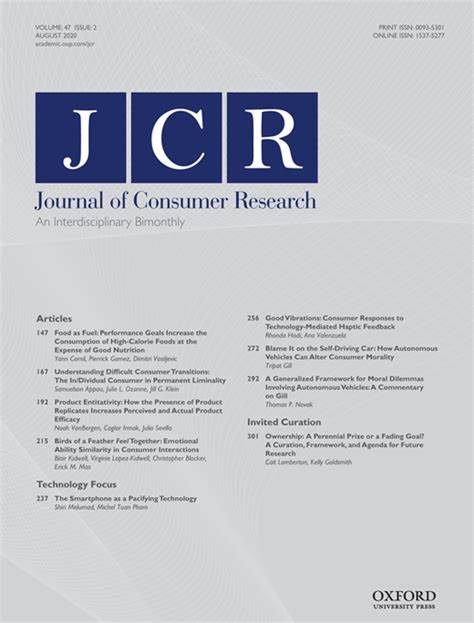回到现在心理时空旅行的方向如何影响对时间相似性的感知和储蓄行为
IF 6.4
1区 管理学
Q1 BUSINESS
引用次数: 0
摘要
许多消费者说他们想为未来储蓄,但却很难做到。本研究从信息说服的角度探讨了这一储蓄行为问题。为了帮助人们更好地照顾未来的自己,我们以一系列研究为基础,这些研究发现,人们随着时间推移看待自己身份的方式会影响他们做出的储蓄决定。虽然过去关于跨时间相似性判断的研究几乎都是从现在的自己开始,然后再向前推移到未来的自己,但理论上这种判断可以从任何时间点开始。在这里,我们通过要求人们从未来开始并回到现在,来探索心理时空逆向旅行的可能性。一系列研究表明,从未来到现在--而不是从现在到未来--的心理旅行会通过减少目的地自我的不确定性来增加不同时间自我之间的相似性。实验室研究和两项大规模实验表明,作为这种新型干预措施的重要成果,从未来到现在的心理旅行产生了微小但积极的影响,系统性地提高了储蓄意愿和储蓄行为。本文章由计算机程序翻译,如有差异,请以英文原文为准。
Back to the Present: How Direction of Mental Time Travel Affects Perceptions of Similarity over Time and Saving Behavior
Many consumers say they want to save for the future yet struggle to do so. This research examines this saving behavior problem from a persuasive messaging standpoint. With the goal of helping people take better care of their future selves, we build on a stream of research that has found that the way people view their identities over time affects the saving decisions they make. Although past research on similarity judgments across time almost exclusively starts with the present self and moves forward to the future self, such judgments could theoretically start at any point in time. Here, we explore the possibility of backward mental time travel, by asking people to start in the future and return to the present. A series of studies shows that mentally traveling from the future to the present—rather than the present to the future—increases perceived similarity between selves across time by reducing the uncertainty of the destination self. Lab studies and two large-scale experiments indicate that, as an important outcome of this novel intervention, mentally traveling from the future to the present has a small but positive impact, systematically increasing savings intentions and savings behavior.
求助全文
通过发布文献求助,成功后即可免费获取论文全文。
去求助
来源期刊

Journal of Consumer Research
BUSINESS-
CiteScore
12.00
自引率
9.70%
发文量
53
期刊介绍:
Journal of Consumer Research, established in 1974, is a reputable journal that publishes high-quality empirical, theoretical, and methodological papers on a wide range of consumer research topics. The primary objective of JCR is to contribute to the advancement of understanding consumer behavior and the practice of consumer research.
To be considered for publication in JCR, a paper must make a significant contribution to the existing body of knowledge in consumer research. It should aim to build upon, deepen, or challenge previous studies in the field of consumption, while providing both conceptual and empirical evidence to support its findings.
JCR prioritizes multidisciplinary perspectives, encouraging contributions from various disciplines, methodological approaches, theoretical frameworks, and substantive problem areas. The journal aims to cater to a diverse readership base by welcoming articles derived from different orientations and paradigms.
Overall, JCR is a valuable platform for scholars and researchers to share their work and contribute to the advancement of consumer research.
 求助内容:
求助内容: 应助结果提醒方式:
应助结果提醒方式:


